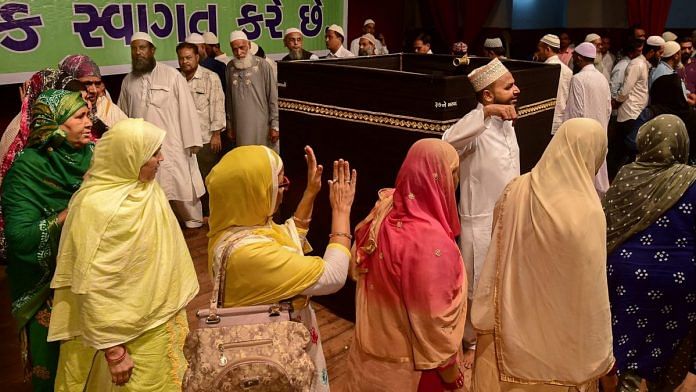Let’s politicise health
K. Sujatha Rao | Former health secretary, Government of India
The Indian Express
Rao argues India should have a zero-tolerance approach to laxity on health-related matters. She says India had at least four “outbreaks” of child deaths in Uttar Pradesh and Bihar in the last five years — 2014, 2016, 2017 and the present one in Bihar. She cites a Lancet study to argue that India’s health system continues to be plagued by three unacceptable factors.
First, there is a lack of clarity on the factors that should be addressed on a priority and that can enable the creation of protocols for prevention and treatment. Second, she explains that all the children who died suffered from “multidimensional” poverty — unclean habitation, poor housing, overcrowding, hunger and illiteracy.
In the latest incident in Bihar, Rao says, it’s not litchi consumption per se, but consumption of unripe, rotten or partially consumed litchis followed by no meal that is the cause of AES. Thus, she argues, “the causal factor is clearly poverty-associated hunger and dietary practices”.
The third factor, she says, is a collapse of the primary healthcare system.
Taking firm steps to emancipation
Markandey Katju | Former Judge of the Supreme Court of India
The Hindu
Katju says perhaps the overwhelming victory of the BJP in the 17th Lok Sabha elections is a blessing in disguise for Indian Muslims. He says Muslims in India have mostly been treated as a vote bank by the “so-called secular parties”. He cites the Sachar Commission report that says most Muslims in India continue to remain backward.
The present situation, he argues, can “force the community to ponder over their welfare, how to remedy the situation and improve their lives”.
To achieve this, Katju says, Muslims should take three radical steps. First, they should demand a Uniform Civil Code for all religious communities and allow for the abolition of Sharia law. Second, he says, they should demand the abolition of the burqa (face veil). The third demand should be for the abolition of the All India Muslim Personal Law Board (AIMPLB), says Katju.
Plastic waste is choking India
Brahma Chellaney | Geostrategist
The Times of India
Chellaney highlights the impact plastic waste is having on the environment. He argues even though India plans to “phase out single-use plastics by 2022”, it lacks a “concrete national strategy to clear the plastic debris polluting its land and waterways”. He adds that India also doesn’t have a national policy requiring recycling of plastic bottles.
He suggests India should follow Germany to design policies that promote recycling. In Germany, the poor scavenge trash bins for bottles which yields deposit return at supermarkets.
He says India should also offer a similar monetary incentive to poor who deposit plastic waste with retailers. Simultaneously, India should also put an environmental tax on plastics.
It’s time for a Green Party of India
Mukund Govind Rajan | Chairman, ECube Investment Advisors, an ESG-focused platform
Hindustan Times
Rajan says, “India is acknowledged to be at ground zero of the global warming challenge.” He also says Indians consider environmental issues to be important as is evident from outcries against air pollution in Delhi or concerns around forest preservation, encroachment and mining in tribal belts.
He argues that such concerns suggest there is political space for a Green Party to emerge in India. Concerns around climate change, he observes, are already becoming an election issue in other parts of the world like the US and Europe. Also, the present state of India’s opposition parties suggests that their caste-based formulations have been rejected.
The author recommends that any Green Party that emerges can include the following in its manifesto — “determination to prod corporate India on the path of sustainability”, “resolve to embrace leap-frog technologies in areas like electric mobility” and a “commitment to increase dense forest cover” — among other things.
Ms FM, Big Bang Reforms Now?
Hardayal Singh | Former chief commissioner of Income Tax
Economic Times
Singh asks if the Modi government will implement the much-needed second generation economic reforms. He says the answer to this question will determine if India will realise its potential of 8 per cent growth and create jobs for the 10 million people who join the workforce annually. He writes on how land and labour reforms may not be implemented in the face of intense resistance from both inside and outside the Sangh parivar.
He suggests improving the process of enforcement of contracts is critical to 3.5 million cases pending in high courts and 27.2 million in lower courts. Singh also advocates a reduction in tax rates across the board.
We need more business institutions, not just companies
R Gopalakrishnan | Corporate advisor and distinguished professor of IIT, Kharagpur
Business Standard
Gopalakrishnan writes on why companies should not mechanically emulate successful companies. Great institutions are “more than engineered processes and ingredients, they are live organisms with emergent factors at play”, he says.
He points out how HDFC group, TCS, L&T, Wipro, Kotak Mahindra Bank, Marico and Biocon which have created over a million-and-a-half direct jobs, 20 million allied jobs and a market value of $300 billion in a few decades have been shaped by “remarkable individuals”. He adds India needs more institutions and shapers for its undoubted bright future.
School education needs to be scaled up
Uday Balakrishnan | Visiting faculty at IISc, Begaluru
Business Line
Balakrishnan says India will be a “left-behind” country if it does not reform its education system significantly. The ASER 2018 report found that only 73 per cent of class 8 students can read a 2nd standard textbook. School infrastructure is lacking good buildings, well-trained, well-paid and motivated teachers with good attendance record, chairs, tables and adequate sanitary facilities.
He also highlights the high drop-out rates and says India needs to significantly increase its investment in school education, and ensure more and better quality schools, while also ensuring that education is made accessible to all.






